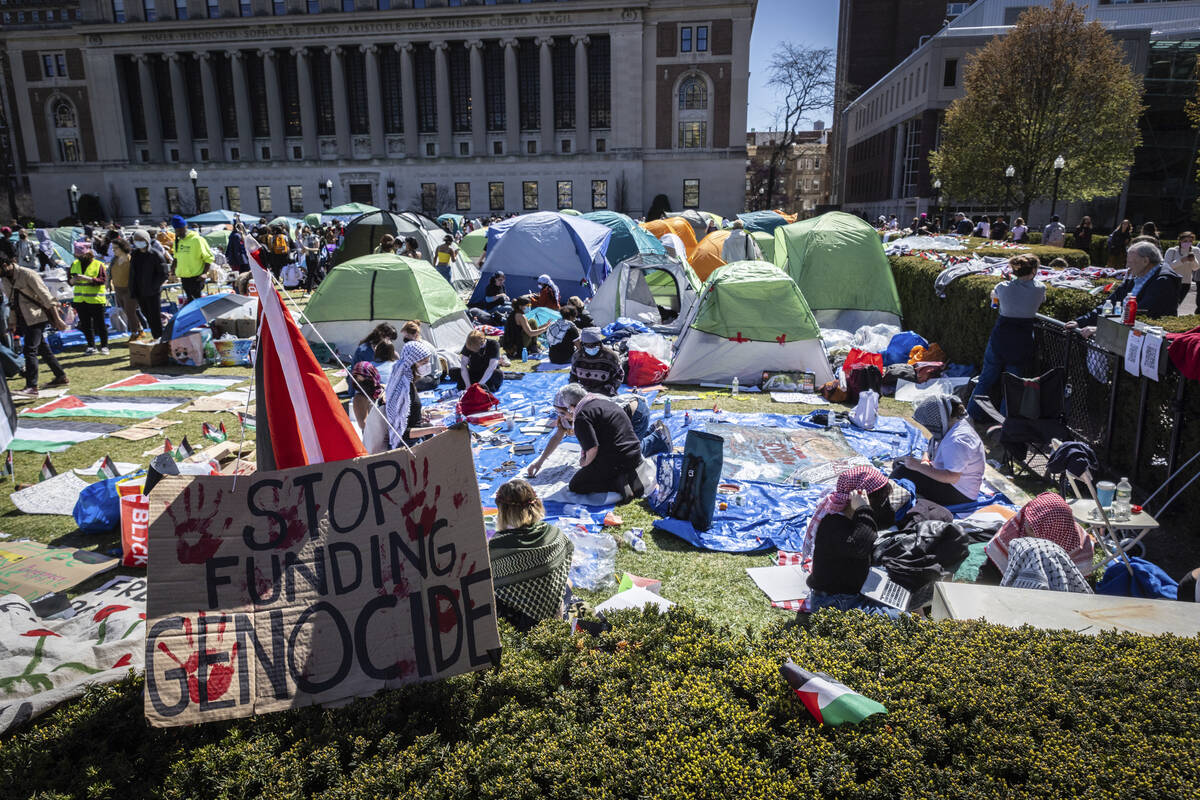CLARENCE PAGE: This era’s protesters could stand to ask a few more questions
One of the roles we old folks fall into is to wish we could painlessly and conveniently give young people the useful wisdom life has taught us so they won’t have to learn it the hard way.
Such are the thoughts that come to me as I witness the spread of militantly anti-Zionist protests across campuses similar to anti-war protests in the Vietnam War era.
Whether or not the volume, rage and heated rhetoric of the protests in signs, songs and chants is overtly antisemitic or not, it is not hard for me as a Black man to empathize when I hear some of my Jewish friends tell me the horror they feel at hearing their kids speak of feeling under siege for their Jewish identity. That it’s an election year only adds to their unease.
As a secondary debate swirls up around free speech and how much of it should be allowed — and in what fashion — I see reactions as rude as the walkout by protesting students before Jerry Seinfeld’s commencement speech at Duke University and as violent as the mass arrests at the University of Texas.
As civil libertarians have said, the best response to objectionable speech is more speech. But it helps to have speakers who know what they’re talking about.
As a student who remembers an earlier generation of campus protests, I was pleased to hear that some campuses have brought back the “teach-ins.” Teach-ins began at the University of Michigan in 1965 to protest the Vietnam War and expanded to colleges and universities across the country.
So did “literature tables” and sign-up sheets for anti-war petitions and other causes in a decade known for its abundance of causes.
Now, there are many differences between the Vietnam War-era activism, particularly in its early stages, and the Gaza protests. There was more of an educational component to those teach-ins, and not everyone who spoke at them shared exactly the same viewpoint. But eventually as the war dragged on the protests of that era took on the stridency of what we see today on campus.
In that way, looking back, I can see the teach-ins of those days as our version of today’s encampments.
Whether the protests ended the Vietnam War any sooner than it would have otherwise remains a subject for vigorous debate. But at least they helped a lot of us to make better arguments.
I went to Ohio University, where anti-war protests transformed our school’s reputation from “the Harvard on the Hocking” River, to the “Antioch of Appalachia” and “the Berkeley of the Backwoods.”
As projects such as Ken Burns’ excellent 10-part PBS series would make clear in more recent times, we and the Vietnamese were not even fighting the same war.
We were fighting, in accordance with the prevailing wisdom, a war against the spread of communism. But our enemy was fighting what, to them, was the latest stage of more than a century of battles for independence from outside invaders, who by the time I was dragged into it as an Army draftee, had become us.
Americans called it the “Vietnam War” but to the Vietnamese, it was — and is — remembered as “the American War.”
Looking back, I can see the mistakes we made and, more recently, mistakes that this generation of protesters is making. I have spoken to too many young people who jumped in too quickly to lambaste Israel for fighting Hamas as if Israel had not been attacked in the worst massacre of Jewish civilians since the Holocaust.
At the same time, I’m frustrated like many other Americans to see President Joe Biden fail to put more pressure on Israel to move toward a cease-fire and reduce the slaughter of innocents of all ages.
Sorry, I don’t have any more easy answers than anyone else for the complex troubles in that part of the world. But before we can find the right answers, we need to know enough to ask the right questions.
Contact Clarence Page at cpage@chicagotribune.com.






















